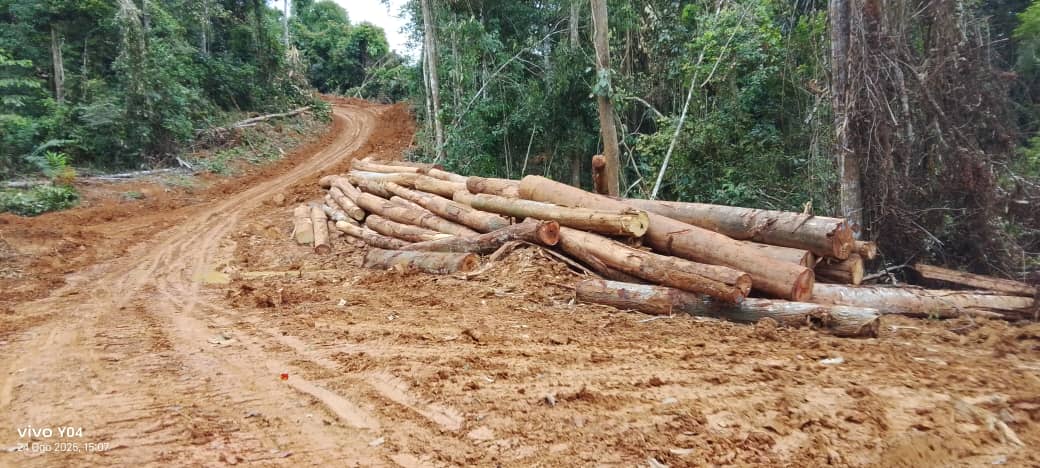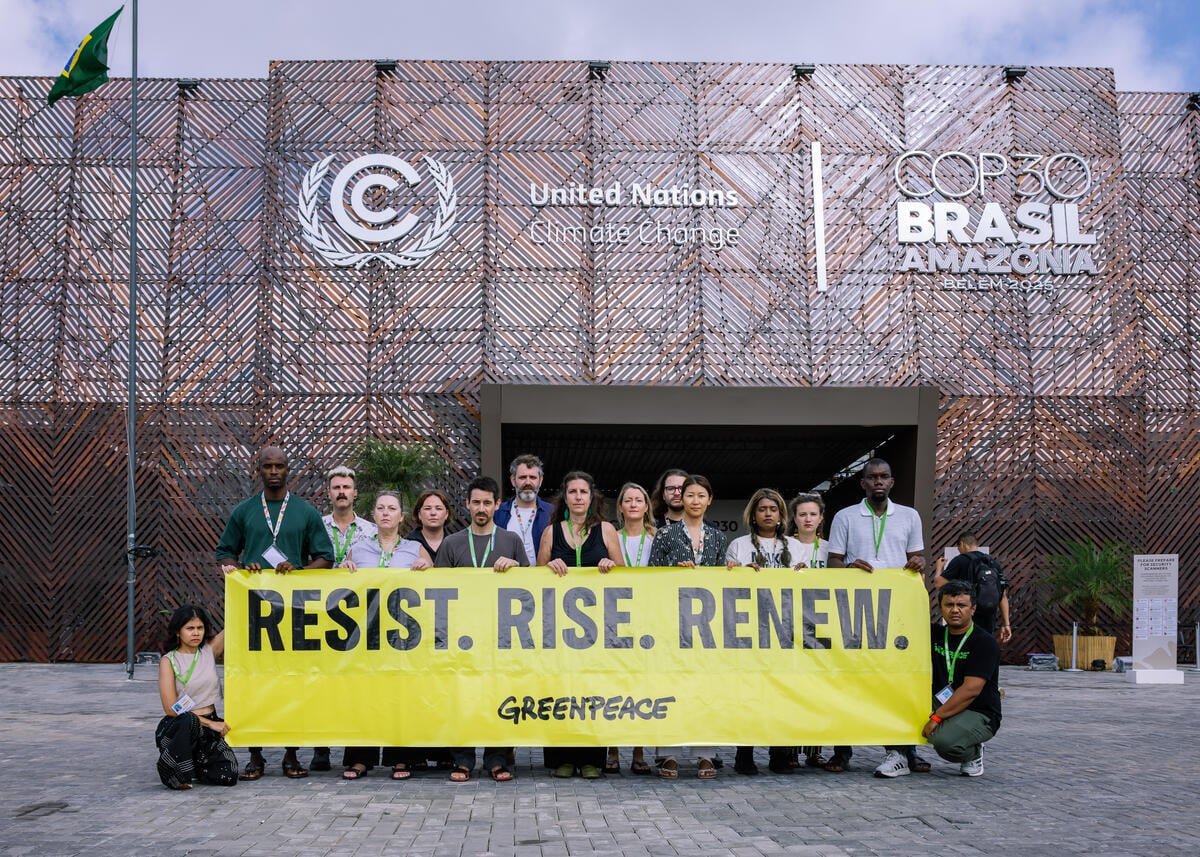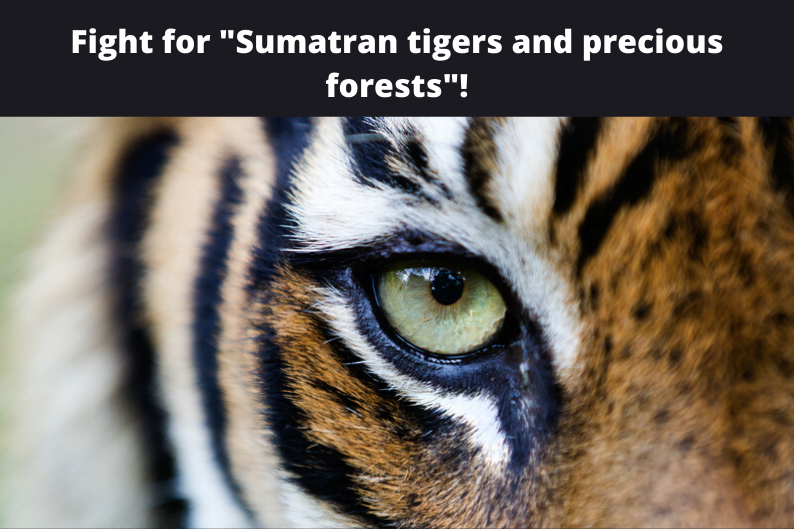
In Indonesia, the concession land owned by the paper giant Asia Pulp and Paper (APP) is one of the most fire impacted areas in recent years. The root cause is large-scale deforestation and peatland degradation. This destruction robs tigers of their natural habitat, forcing them accidentally into traps, leaving the already critically endangered Sumatran tiger in a crisis of survival.
Pulp industry invades wild habitats, Sumatran tigers survival at risk. One of the world ’s largest paper producers, the Sinar Mas Group, and its pulp and paper company Asia Pulp and Paper (APP), operates a pulp concession site that finds an endangered Sumatran tiger trapped in a trap on the 18th of May. It is judged that it died after being unable to obtain food and water for several days. The concession site is also one of the most fire impacted sites among all plantation concession sites in Indonesia in recent years.
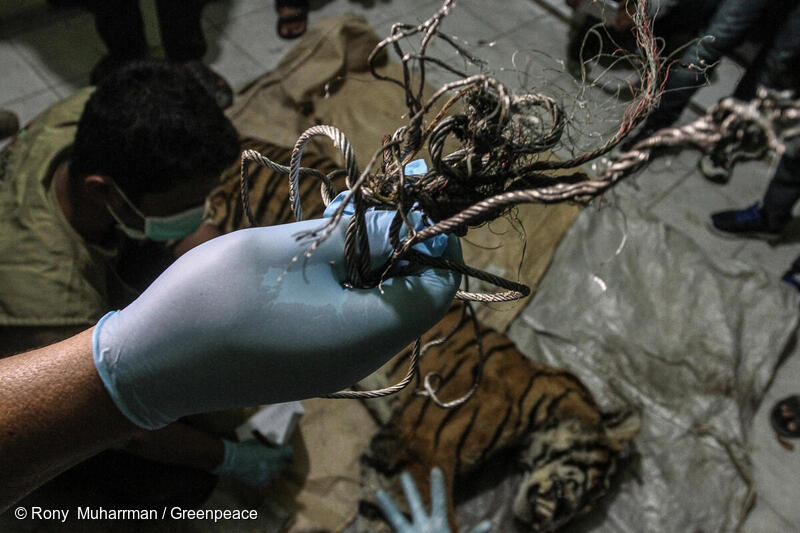
Large-scale deforestation and peatland drainage are the root causes of uncontrolled forest fires in Indonesia. This destruction has taken away the tiger ’s natural habitat and trapped them in very limited ranges of their original territories.”In countries with rich biodiversity, rapid deforestation and habitat loss mean’s that wild species like tigers are forced to come into closer contact with humans and are eventually killed. Now, with the outbreak of the COVID-19 pandemic, there is more evidence that many outbreaks of communal diseases are related to deforestation, “said Kiki Taufik, Greenpeace Indonesia forest campaign project lead.
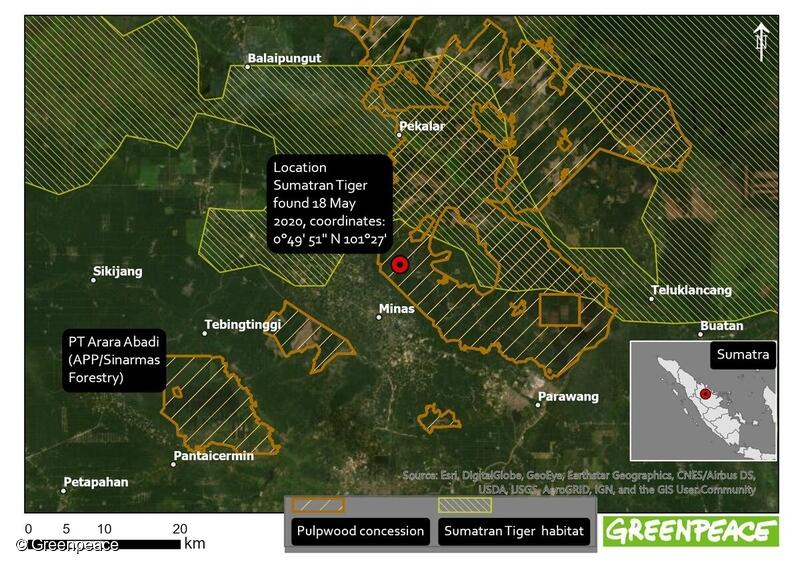
“Therefore, stopping forest destruction is very important to save the climate, wildlife, and even our health and future.”
Habitat for critically endangered species has actually set a trap. The Natural Resources Conservation Bureau, which conducted an autopsy of the tiger, pointed out that The dead male tiger, estimated to be between one and two years old, was wounded in its right front leg which most likely led to an infection. Investigators found the body of a pig near the trap, indicating that the tiger may be the target of poachers. So far this year, at least two other wild Sumatran tigers were caught in a trap in the pulp and paper industry concessions, Unfortunately, only one of them was rescued in time and immediately treated.
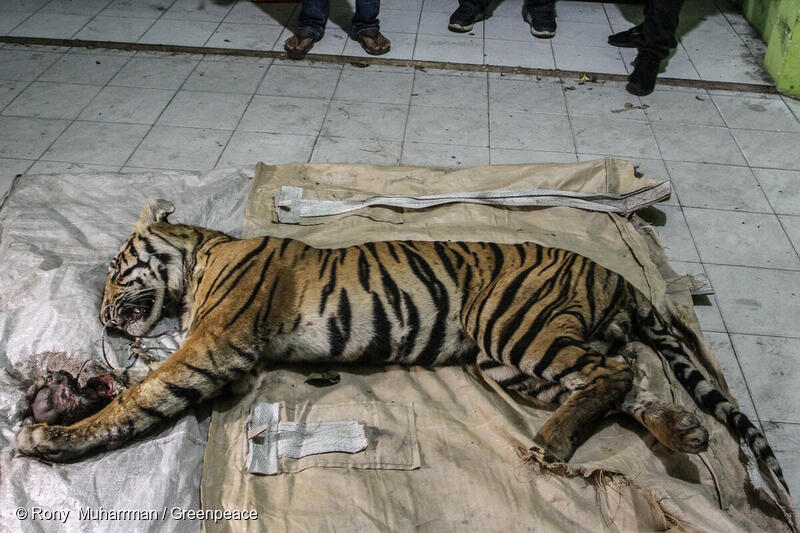
Since 2008, poaching, habitat loss, and human-wildlife conflict have continued. Sumatran tigers are listed as critically endangered species on the IUCN Red List. About ten years ago, Greenpeace videos showed that in the APP concession, a tiger was caught in a trap and slowly died. This incident is a repeat of the company’s dark history. Although APP has promised to stop deforestation, the company has been found to be involved in deforestation, peatland clearing and burning on several occasions.
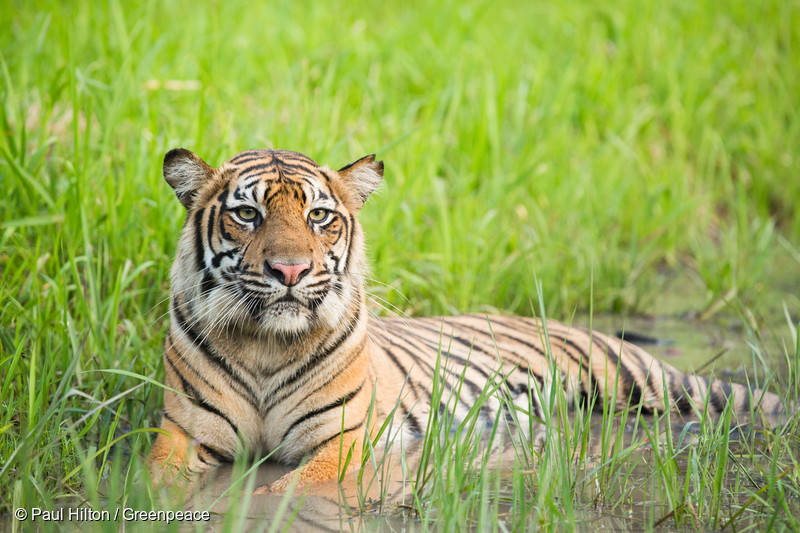
The forest is the only and final habitat of tigers. If we want to save Indonesia ’s most iconic Sumatran tiger, the few remaining tiger habitats must be completely protected from human intrusion.
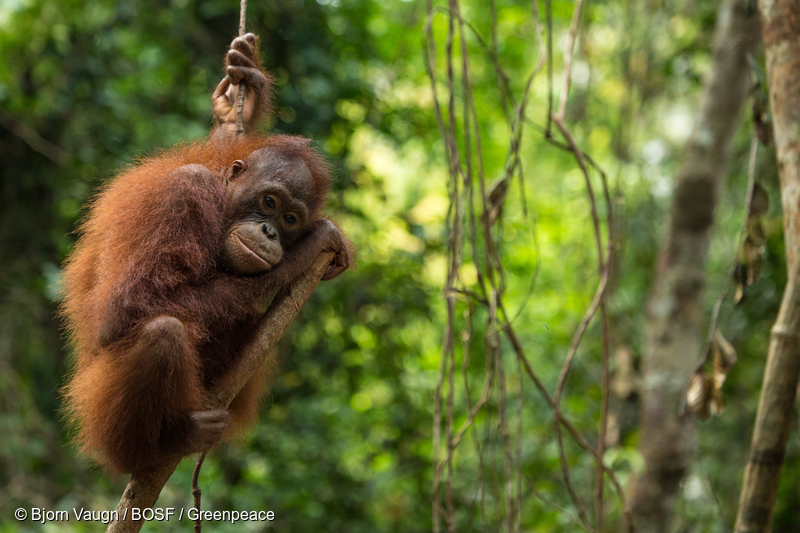
More than 90 organisations require the Indonesian government to strictly enforce the law. Since 2010, Greenpeace has continuously exposed evidence of the destruction of the rainforest in Indonesia, demanding that international pulp and palm oil companies stop deforestation, and for many years demanded that the government enforce the law to severely punish the culprit for the destruction of the forest. APP promised to end deforestation in 2013, but recent analysis shows that between 2015 and 2018, the area of forest burned in the APP franchise is larger than that of Singapore. APP is still in control of large forests and peatlands that habitat tigers, elephants and orangutans. In Sumatra, there have been many cases of animal deaths caused by human destruction in their operating areas.
Last week, more than 90 local and international NGOs called on APP ’s business partners to suspend transactions with the company until the company made significant changes in their operations, which stop deforestation and peatland degradation completely.
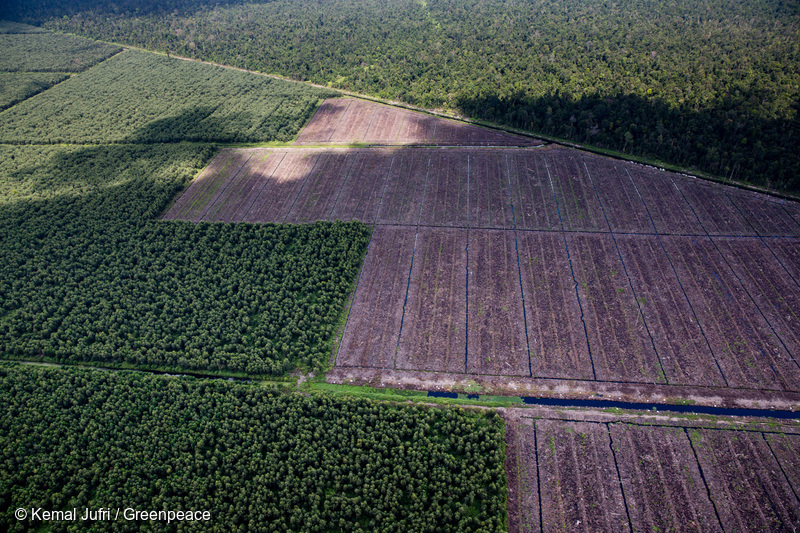
Now, the Indonesian government must strengthen regulations to protect forests and peatlands. At the same time, companies should pay more attention to the environmental principles of the supply chain and actively seek alternatives to avoid the tragedy of deforestation and animal extinction.
Guard the forest, you can do this!
Global forests are in danger of fire and illegal logging. Tigers, orangutans and other creatures relying on forests to survive and need your help.
Forests are of great help in resisting climate change, and at the same time, they are the homes for the survival of many species. Therefore, protecting forests is a goal that you and I, who care about the environment, must adhere to. You can join the attention to forest fires and deforestation messages and actually support the Greenpeace initiative, together with requesting the government and enterprises to take responsibility for protecting the forest. Everyone’s little contribution will condense into a huge influence so that the precious forest can be retained for generations. Invite you to donate together to support Greenpeace’s international environmental work!
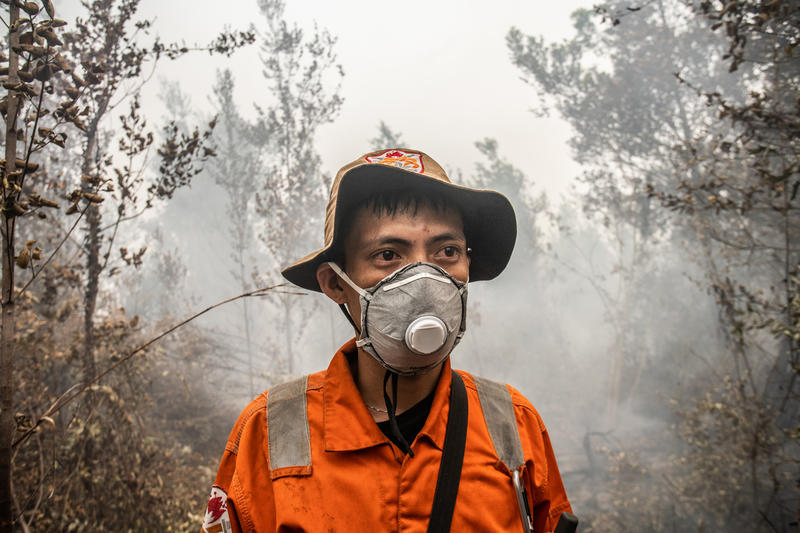
We can’t do this without your help. Take action for environment protection, please make a donation today.
Donate Now
